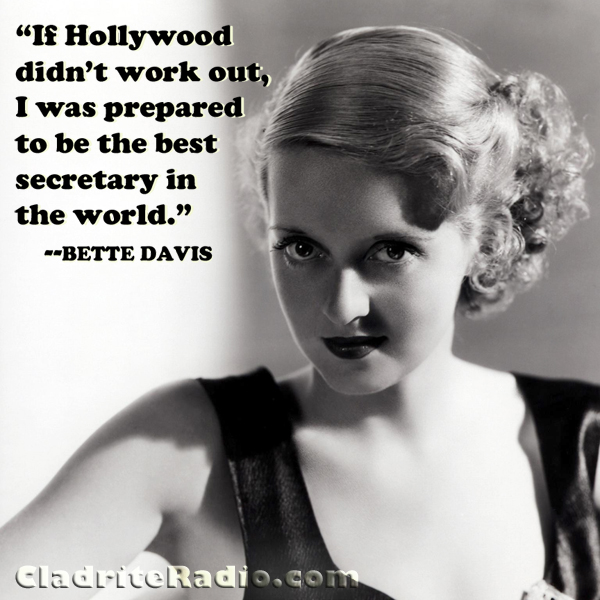
Tag: classic films
Hollywood Shorts: As Told at the Masquers Club
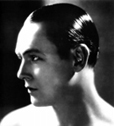 Charles Ray was a popular juvenile star in the 1910s and ’20s, but by the ’30s, his career was on the rocks, and he turned to writing. Here’s another in a series of offerings from his book, Hollywood Shorts, a collection of short stories set in Tinseltown.
Charles Ray was a popular juvenile star in the 1910s and ’20s, but by the ’30s, his career was on the rocks, and he turned to writing. Here’s another in a series of offerings from his book, Hollywood Shorts, a collection of short stories set in Tinseltown.“Aw, give ‘im the works, boys. He’s nuts!”
“Harold, you’re crazy! You’re going soft-hearted, or soft-headed, I can’t tell which!”
“Why don’t you put your altruistic theories into practice? You’re daffy as a loon, and someday they’ll drive up and take you for a ride—to a place with a tall iron fence.”
At the Hollywood actors’ club, a small group were seated in the lounge kidding Harold Wild.
Harold was an actor of prominence. His friends understood his place on the screen and his excellent portrayals, but not his multivocal rantings on the conventionalism of life which, as he averred, kept people from being themselves—their real selves.
“It’s a silly old world,” he often contended. “It’s human beings that make existence so miserable.”
Harold Wild was not a character that his name might imply. But he made himself very obnoxious around the club with his theoretical chatter, and so they avoided him—called him “Softy” Wild.
Weeks passed.
Gradually his friends noticed a great change in him. A little caused him to give in and tell a story concerning himself.
One stormy night, while driving along Hollywood Boulevard in the warm confines of his roomy sedan, he was speculating seriously on why it was, in such a nasty rain, that a man could not throw open his car door and offer a lift to any woman in need.
Conventionalism is the answer, he sneered. He had passed up three women at crossings in the last four blocks. Silly conventionalism was the curse of the human family, he thought, stifling a world which might otherwise be a happy playground. What an infantile existence this life really was!
And so he argued on until conscience demanded action. A firm conviction gave him peace of mind: at the next intersection he would do this chivalrous thing without thought of race or age. No one could accuse him of being a masher. His attitude would show that it was all purely an impersonal gesture.
The red light of the traffic signal bloomed into prominence through the veil of mist on his windshield. Slowly he eased his car nearer to the curbing, and through the rivulets of water streaking the glass door, saw a sight which made his soul vibrate with compassion.
“What a crime!” he mumbled.
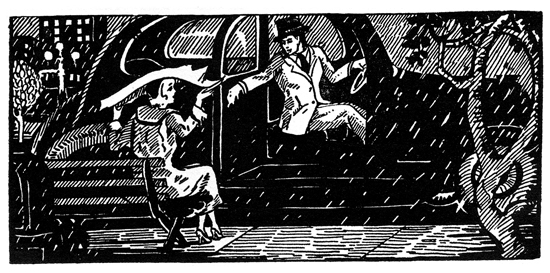
Sitting on a bus bench in a miserable attitude, a woman was trying to house herself waterproof by holding a newspaper roof-like over her head. Pathetic, he thought sincerely, and threw his car door open in welcome.
“Madam!” he shouted quite reverently. Then he stammered: “I’d like to—would you—it’s just my way of—“
The rush of rain down his coat sleeve demanded simplicity, and he intelligently succumbed.
“May I have the privilege of giving you a lift?” he achieved without stuttering.
Dropping the soggy newspaper, the girl rose and skipped the distance to the car quickly, entering with a mumbled “thanks.”
The signals changed. The traffic moved on. Harold Wild cleared his throat and expressed his elation.
“I’m very happy that you accepted my offer of a lift. This conventional business is silly, isn’t it? Now if you’ll just tell me your destination, I’ll not even bother you with conversation.”
“I can’t see very well,” she mumbled, peering through the glass. “It’s only a few blocks. I suppose I had better watch closely and tell you when to stop.”
Hollywood Shorts: Unseen Faces
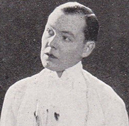 Charles Ray was a popular juvenile star in the 1910s and ’20s, but by the ’30s, his career was on the rocks, and he turned to writing. Here’s another in a series of offerings from his book, Hollywood Shorts, a collection of short stories set in Tinseltown.
Charles Ray was a popular juvenile star in the 1910s and ’20s, but by the ’30s, his career was on the rocks, and he turned to writing. Here’s another in a series of offerings from his book, Hollywood Shorts, a collection of short stories set in Tinseltown.Unseen Faces
or
FOUR A. M. in a HOLLYWOOD CAFE
| BOOTH FIVE: | “You can’t rhyme anything with orange.” “Yes, I can, honey. Syringe.” “That’s stilly. Bet you can’t rhyme itsy-bitsy.’ |
| BOOTH THREE: | “Let’s play ‘As-low-as.’ You start it.” “Well, I feel as low as an empty bottle.” |
| BOOTH SIX: | “Boy, that’s low!” a drunk chimed in. |
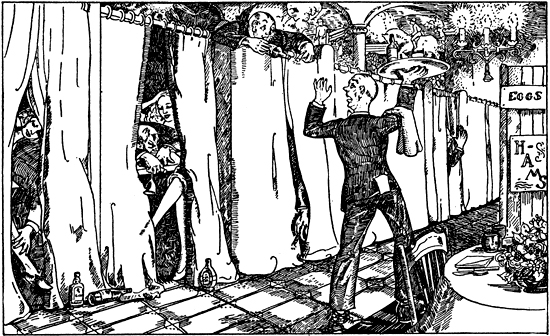 |
|
| BOOTH FIVE: | “Bet you can’t rhyme itsy-bitsy.” “Wanta get me thrown out?” |
| BOOTH SIX: | “Sure!” |
| BOOTH THREE: | “I feel as low as a hiccup starts. Top that!” “I feel as low as a gum wrapper in the subway.” |
| BOOTH SIX: | “” “Oh, cellophane!” the drunk humored. |
| BOOTH TWO: | “An’ me with my pants down.” “An’ then wad he say?” |
| BOOTH FIVE: | “You can too, rhyme itsy-bitsy!” |
| BOOTH FOUR: | “I just love champagne, don’t you?” “Yeah. Waiter, two beers!” |
| BOOTH SIX: | “Louse!” |
| BOOTH FIVE: | “Go on, rhyme itsy-bitsy.” |
| BOOTH THREE: | “As low as an elephant’s trunk.” “As low as a dachshund’s pup.” |
| BOOTH SIX: | “Oh, how low!” |
| BOOTH ONE: | “Whaddya want for nuthin’?” “Whaddya got?” “That ain’t no way to act!” |
| BOOTH THREE: | “As low as a torch-song’s wail.” “As low as Moanin’ Low!” |
| BOOTH SIX: | “Oh, remorse!” |
| BOOTH ONE: | “I thought you said you liked me?” “Whaddya expect in a restaurant?” “Service.” |
| BOOTH SIX: | “That’s dirty!” |
| BOOTH FIVE: | “If you rhyme itsy-bitsy.” |
| BOOTH TWO: | “So I says: Why should I?” “An’ then wad he say?” |
| BOOTH FIVE: | “Please rhyme itsy-bitsy for little girl?” |
| BOOTH SIX: | “Rhyme bitsy for her, or I’ll go nuts!” |
| BOOTH THREE: | “As low as an auto horn’s honk.” “As low as a horse’s—“ |
| BOOTH SIX: | “Oh, be careful!” |
| BOOTH THREE: | “A horse’s hoof.” |
| BOOTH SIX: | “Oh, relief!” |
| BOOTH FIVE: | “I will if you rhyme itsy-bitsy.” |
| BOOTH SIX: | “Oh, rhyme itsy-bitsy!” |
| BOOTH THREE: | “As low as an ant’s antennae.” “As low as a flea’s Uncle Peter.” |
| BOOTH SIX: | “There must be a mistake!” |
| BOOTH THREE: | “As low as a thermometer’s bottom!” |
| BOOTH SIX: | “Oh, I can’t take it!” |
| BOOTH FIVE: | “Gotta rhyme itsy-bitsy!” |
| BOOTH TWO: | “So I says: You’re no gentleman!” “An’ then wad he say?” |
| BOOTH ONE: | “Can’t, got to powder my nose.” “Can’t you do two things at once?” |
| BOOTH SIX: | “Oh, I’m passin’ out! Waiter!” |
| BOOTH FIVE: | “No itsy-bitsy for little girl?” |
| BOOTH TWO: | “No break at all, huh?” “An’ me with my pants down.” |
| BOOTH SIX: | “Waiter! Here’s somethin’ f’r you. Now you do somethin’ f’r me. Rhyme itsy-bitsy for Booth Five, an’ gimme a report on the gender sittin’ in Booth Two.” |
Hollywood Shorts: An Actress and How
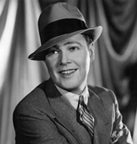 Charles Ray was a popular juvenile star in the 1910s and ’20s, but by the ’30s, his career was on the rocks, and he turned to writing. Here’s another in a series of offerings from his book, Hollywood Shorts, a collection of short stories set in Tinseltown.
Charles Ray was a popular juvenile star in the 1910s and ’20s, but by the ’30s, his career was on the rocks, and he turned to writing. Here’s another in a series of offerings from his book, Hollywood Shorts, a collection of short stories set in Tinseltown.Back in Indianapolis, Grace Nome made the mistake of stating that she wanted to be an actress the worst way. The remark caused so much kidding that it ultimately drove her to Hollywood.
Three days in the film city brought discouragement. She emerged from a studio casting office with a weaker desire to show the folks back home.
“It’s tough that there isn’t any work,” a youth whispered while making an exit from the same building. “Well, don’t let it get you down,” he concluded with a weak smile.
“Oh, I’ll be all right,” Grace brightened confidently. “I’m predestined, if you know what I mean.”
Lifting his eyebrows, the boy grimaced and mumbled: “Yes, I’ve heard the expression before.”
The strident noise of bad brakes impinged on their ears, and a dilapidated Ford vibrated inelegantly to the curb before them.
“Hi, Harry!” the occupant shouted. “Here comes Personality Jimmie!” Bounding from the car, a boy thumbed six tickets, then kidded brazenly: “Oh, oh, didn’t mean to muscle in. Why, Harry, were you with this young lady?”
His friend turned to the strange girl.
“Guess you’ll have to help me out, Miss—Miss—“
“Grace Nome is my name.”
“Mine is Harry Wyatt, and this would-be comic intruder is Jimmie Hagel. Don’t mind him. He’s a nut, a goof, and a swell guy all rolled into one. He swears he’s funny—you know, funny like a comedian.”
Jimmie guffawed. “Why, I’m a comic, and you know it.”
“Don’t flatter yourself. You haven’t even got a one-day job.”
“Yeah, but I’m on my way to Paramount with hope and—“
“Oh,” Grace broke in, “will you tell me the location of Paramount Studios?”
“Hop in, Miss Nome. If you can stand this rattletrap fliv of mine, be there in three or four minutes. The ol’ buggy’s perky, has the shakes, but it’s sure.”
“I don’t want to intrude.”
“No trouble. Just look at that Class car, rarin’ to go! No foolin’, it has Class A inscribed on the motor. Just let me introduce you to the Baron. Hi Baron, this is Miss Nome. Miss Nome—the Baron. Barren of polish, barren of paint, barren of—“
“I can’t take it,” Harry groaned. “Jimmie, not in my financial mood. I’ll ride with you, if you’ll promise not to pun.”
“Not a pun in a carload. Hop in. I promise to keep the trap closed until I get a refusal from Paramount.”
In a few moments the three were crammed into the almost unupholstered seat, jogging zigzag and bouncy along Hollywood Boulevard. Eying the blonde beside him, Jimmie voiced his thoughts.
“You’re new, aren’t you, Miss Nome? Haven’t you seen around on the daily hunt. Bucking this extra list is tough sleddin’. What luck do you expect to have in the big bad film city?”
“Don’t answer him, Miss Nome. He’s crazy. Now, Jimmy, tell me why you rushed up with all that enthusiasm about tickets? What were they for?”
“The gamblin’ joint that’s openin’ tonight. I got six. Everybody’ll be there, ’cause they know the police won’t let it stay open long. I’m makin’ up a party. Wanna go?”
Hollywood Shorts: Windows
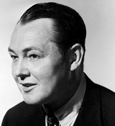 Charles Ray was a popular juvenile star in the 1910s and ’20s, but by the ’30s, his career was on the rocks, and he turned to writing. Here’s another in a series of offerings from his book, Hollywood Shorts, a collection of short stories set in Tinseltown.
Charles Ray was a popular juvenile star in the 1910s and ’20s, but by the ’30s, his career was on the rocks, and he turned to writing. Here’s another in a series of offerings from his book, Hollywood Shorts, a collection of short stories set in Tinseltown.Windows, windows, nothing but windows up and down the narrow hotel court. He had sat counting them many times lately, during the long hours of waiting for a telephone call from Central Casting Office.
But the waiting was all over now. Thoughts of a possible career had faded. He would have to seek employment at anything he could find. This was the end.
Momentarily his eyes rested on the lighted window straight across the court—her window. He had never met the occupant of that apartment, but had often gazed into the windows from the dark recesses of his own room. Not a nice thing to do; yet his actions were not those of a peeping Tom. They were more like a Romeo, with Romeo’s mood and lines:
| “O that I were a glove upon that hand, That I might touch that cheek!” |
Just now, as he saw his dream girl move into view to answer her telephone. “Tomorrow,” he read easily on her lips, and from her expansive frown, realized that the single word did not satisfy the party on the other end of the wire.
Quite distraught, she started pacing the floor, twisting her handkerchief, seeming ready to burst into tears.
He could not summon any pity for her. His own troubles surmounted any that another human could possibly have. No one could be placed in the same miserable, deplorable condition as he.
The girl’s pacing and turning afforded clear scrutiny of her beauty. Jet-black hair fell in fluffy waves over a well-chiseled brow, crowning a lovely face with glory. He sensed long lashes, veiling eyes that he felt sure were golden brown. Too thin a figure, he criticized unconsciously.
Stopping abruptly in her pacing, the girl lifted her head haughtily and said: “Come in.”
The door swung open, revealing the clerk. He carried a bunch of keys, and ordered the emotional girl into the hall.
The eviction made the boy’s blood run cold. Grabbing several envelopes, he rushed out to the mail chute, and stood as if occupied, to listen.
“But had I only known,” he heard his dream girl plead.
“You can’t tell me that the manager hasn’t warned you many times,” the clerk insisted, demanding her key. “Six o’clock tonight was the limit of his endurance, he told me to inform you. I do hope you will understand that this duty is painful to me,” he concluded, bolted the door, and left the evicted girl crying against the wall like a child locked in a closet.
Edging very close, the sympathetic boy stammered: “May I—could I be of any assistance?”
She looked up through moist eyes which he saw were hazel.
